Dates are a popular fruit enjoyed for their rich sweetness and numerous health benefits. In the world of dates, two varieties stand out – fresh dates and Medjool dates. Despite both being types of dates, these two varieties have distinct differences in terms of flavor, texture, appearance, and culinary uses. Understanding the characteristics of fresh dates and Medjool dates can help you choose the right type of date for your needs. Fresh dates, also known as soft dates, are harvested when they are still in their completely ripened state. Typically, fresh dates are picked from the date palm tree while they are still yellow or red in color. These dates have a soft, moist texture and offer a delicate, caramel-like flavor. Fresh dates are often consumed in the Middle East and North Africa, where they are a staple in traditional cuisines and enjoyed as a quick snack. In contrast, Medjool dates are a type of dried date fruit that is larger and stickier compared to fresh dates. Medjool dates have a dark brown color with a wrinkled appearance, owing to their drying process. These dates are known for their luxurious, rich flavor that is often described as caramel-like with a hint of toffee. Medjool dates are widely sought after in Western countries for their versatility in both sweet and savory dishes. One of the key differences between fresh dates and Medjool dates lies in their texture.

.
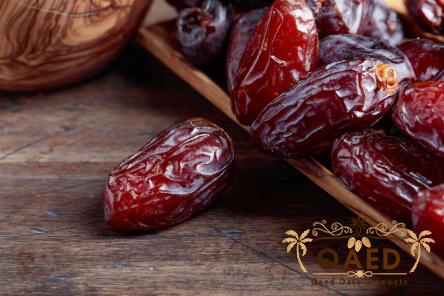 While fresh dates are soft and tender, with a chewy skin that easily gives way to a creamy interior, Medjool dates have a chewier, denser texture due to their drying process. This texture difference makes fresh dates ideal for eating as is, while Medjool dates are commonly used in baking, cooking, and snacking. In terms of flavor, both fresh dates and Medjool dates offer distinct taste profiles. Fresh dates have a milder sweetness with subtle notes of honey and caramel, making them a delightful treat on their own. On the other hand, Medjool dates have a more intense, concentrated sweetness with robust caramel undertones that enhance the flavor of various dishes and desserts. When it comes to appearance, fresh dates and Medjool dates have noticeable differences. Fresh dates are plump and brightly colored, with a smooth skin that retains a slight shine. On the contrary, Medjool dates are darker in color, often appearing wrinkled due to their dehydration process. Despite their contrasting appearances, both fresh dates and Medjool dates offer an appealing aesthetic that adds visual interest to dishes. Culinary uses also play a significant role in distinguishing between fresh dates and Medjool dates. Fresh dates are commonly enjoyed on their own as a quick and nutritious snack. Their soft texture and mild sweetness make them a delightful addition to salads, smoothies, and desserts. Fresh dates can also be stuffed with nuts or cheese for a simple yet elegant appetizer. In comparison, Medjool dates are prized for their versatility in cooking and baking. Their rich, caramel-like flavor pairs well with a variety of ingredients, making them a popular choice for sweet treats such as date squares, energy bars, and desserts. Medjool dates can also be used to sweeten sauces, dressings, and marinades, adding a depth of flavor to savory dishes. In terms of nutritional value, both fresh dates and Medjool dates offer a range of health benefits. Dates are a good source of fiber, vitamins, and minerals, making them a nutritious addition to any diet.
While fresh dates are soft and tender, with a chewy skin that easily gives way to a creamy interior, Medjool dates have a chewier, denser texture due to their drying process. This texture difference makes fresh dates ideal for eating as is, while Medjool dates are commonly used in baking, cooking, and snacking. In terms of flavor, both fresh dates and Medjool dates offer distinct taste profiles. Fresh dates have a milder sweetness with subtle notes of honey and caramel, making them a delightful treat on their own. On the other hand, Medjool dates have a more intense, concentrated sweetness with robust caramel undertones that enhance the flavor of various dishes and desserts. When it comes to appearance, fresh dates and Medjool dates have noticeable differences. Fresh dates are plump and brightly colored, with a smooth skin that retains a slight shine. On the contrary, Medjool dates are darker in color, often appearing wrinkled due to their dehydration process. Despite their contrasting appearances, both fresh dates and Medjool dates offer an appealing aesthetic that adds visual interest to dishes. Culinary uses also play a significant role in distinguishing between fresh dates and Medjool dates. Fresh dates are commonly enjoyed on their own as a quick and nutritious snack. Their soft texture and mild sweetness make them a delightful addition to salads, smoothies, and desserts. Fresh dates can also be stuffed with nuts or cheese for a simple yet elegant appetizer. In comparison, Medjool dates are prized for their versatility in cooking and baking. Their rich, caramel-like flavor pairs well with a variety of ingredients, making them a popular choice for sweet treats such as date squares, energy bars, and desserts. Medjool dates can also be used to sweeten sauces, dressings, and marinades, adding a depth of flavor to savory dishes. In terms of nutritional value, both fresh dates and Medjool dates offer a range of health benefits. Dates are a good source of fiber, vitamins, and minerals, making them a nutritious addition to any diet.
..
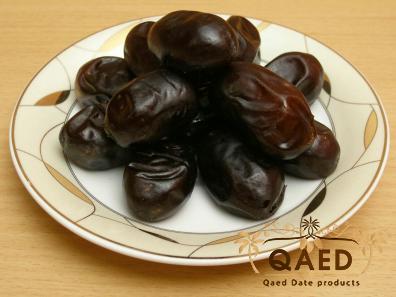 Fresh dates are particularly rich in vitamin C, potassium, and antioxidants, while Medjool dates are high in fiber, magnesium, and iron. Including dates in your diet can support digestion, boost energy levels, and promote overall well-being. When choosing between fresh dates and Medjool dates, consider your taste preferences and intended culinary use. If you prefer a softer, milder date with a delicate flavor, fresh dates may be the perfect choice for you. On the other hand, if you enjoy a richer, chewier date with a robust sweetness, Medjool dates are sure to satisfy your cravings. In conclusion, both fresh dates and Medjool dates offer unique characteristics that cater to different tastes and culinary needs. Whether you enjoy the soft, moist texture of fresh dates or the sticky, decadent flavor of Medjool dates, incorporating dates into your diet can add a touch of sweetness and nutrition to your meals. Experiment with fresh dates and Medjool dates in your kitchen to discover the full range of flavors and textures these delightful fruits have to offer. The versatility of dates extends beyond their flavor and texture, as they also offer various health benefits that make them a valuable addition to your diet. Both fresh dates and Medjool dates are rich in nutrients that can support your well-being in numerous ways. One of the standout health benefits of dates is their high fiber content. Fiber is essential for digestive health, as it helps regulate bowel movements, prevent constipation, and support a healthy gut microbiome. Both fresh dates and Medjool dates are excellent sources of dietary fiber, with Medjool dates being particularly high in this nutrient due to their concentrated form. Including dates in your diet can help promote regularity and improve digestive function. Dates are also packed with vitamins and minerals that contribute to overall health and vitality. Fresh dates are a good source of vitamin C, an antioxidant that supports the immune system and helps protect cells from damage. On the other hand, Medjool dates are rich in minerals such as potassium, magnesium, and iron. Potassium is essential for maintaining healthy blood pressure and heart function, while magnesium plays a role in muscle and nerve function. Iron is important for oxygen transport in the body and preventing fatigue.
Fresh dates are particularly rich in vitamin C, potassium, and antioxidants, while Medjool dates are high in fiber, magnesium, and iron. Including dates in your diet can support digestion, boost energy levels, and promote overall well-being. When choosing between fresh dates and Medjool dates, consider your taste preferences and intended culinary use. If you prefer a softer, milder date with a delicate flavor, fresh dates may be the perfect choice for you. On the other hand, if you enjoy a richer, chewier date with a robust sweetness, Medjool dates are sure to satisfy your cravings. In conclusion, both fresh dates and Medjool dates offer unique characteristics that cater to different tastes and culinary needs. Whether you enjoy the soft, moist texture of fresh dates or the sticky, decadent flavor of Medjool dates, incorporating dates into your diet can add a touch of sweetness and nutrition to your meals. Experiment with fresh dates and Medjool dates in your kitchen to discover the full range of flavors and textures these delightful fruits have to offer. The versatility of dates extends beyond their flavor and texture, as they also offer various health benefits that make them a valuable addition to your diet. Both fresh dates and Medjool dates are rich in nutrients that can support your well-being in numerous ways. One of the standout health benefits of dates is their high fiber content. Fiber is essential for digestive health, as it helps regulate bowel movements, prevent constipation, and support a healthy gut microbiome. Both fresh dates and Medjool dates are excellent sources of dietary fiber, with Medjool dates being particularly high in this nutrient due to their concentrated form. Including dates in your diet can help promote regularity and improve digestive function. Dates are also packed with vitamins and minerals that contribute to overall health and vitality. Fresh dates are a good source of vitamin C, an antioxidant that supports the immune system and helps protect cells from damage. On the other hand, Medjool dates are rich in minerals such as potassium, magnesium, and iron. Potassium is essential for maintaining healthy blood pressure and heart function, while magnesium plays a role in muscle and nerve function. Iron is important for oxygen transport in the body and preventing fatigue.
…
 Furthermore, dates contain natural sugars such as glucose, fructose, and sucrose, which provide a quick and sustainable source of energy. This makes dates an excellent snack choice for boosting energy levels before or after exercise, as well as combating afternoon slumps or sugar cravings. The natural sugars in dates are accompanied by a low glycemic index, meaning they are digested slowly and do not cause sharp spikes in blood sugar levels. In addition to their energy-boosting properties, dates offer antioxidant compounds that help protect the body from oxidative stress and reduce inflammation. These antioxidants, such as flavonoids and phenolic compounds, help combat free radicals and lower the risk of chronic diseases, including heart disease, diabetes, and certain types of cancer. Including dates in your diet can enhance your antioxidant intake and support your body’s natural defense mechanisms. Dates are also known for their potential to promote heart health and reduce the risk of cardiovascular disease. The fiber, potassium, and antioxidants found in dates contribute to healthy blood pressure, cholesterol levels, and overall heart function. Regular consumption of dates may help improve lipid profiles, reduce inflammation in the arteries, and support cardiovascular health. By incorporating dates into a balanced diet, you can protect your heart and lower the risk of heart-related conditions. Moreover, dates have been traditionally used in various cultures for their medicinal properties and therapeutic benefits. In traditional medicine, dates are believed to have anti-inflammatory, anti-microbial, and anti-diabetic effects. Dates are often recommended for treating digestive issues, boosting immunity, and promoting overall well-being. While more research is needed to fully understand the therapeutic potential of dates, their long history of use in traditional medicine underscores their health-promoting properties. Whether you choose fresh dates or Medjool dates, incorporating these nutrient-dense fruits into your diet can provide an array of health benefits that support your well-being. From digestive health and immune function to heart health and energy levels, dates offer a natural and delicious way to nourish your body and enhance your overall health. Experiment with fresh dates and Medjool dates in your favorite recipes to experience the unique flavors, textures, and nutritional benefits that these versatile fruits have to offer.
Furthermore, dates contain natural sugars such as glucose, fructose, and sucrose, which provide a quick and sustainable source of energy. This makes dates an excellent snack choice for boosting energy levels before or after exercise, as well as combating afternoon slumps or sugar cravings. The natural sugars in dates are accompanied by a low glycemic index, meaning they are digested slowly and do not cause sharp spikes in blood sugar levels. In addition to their energy-boosting properties, dates offer antioxidant compounds that help protect the body from oxidative stress and reduce inflammation. These antioxidants, such as flavonoids and phenolic compounds, help combat free radicals and lower the risk of chronic diseases, including heart disease, diabetes, and certain types of cancer. Including dates in your diet can enhance your antioxidant intake and support your body’s natural defense mechanisms. Dates are also known for their potential to promote heart health and reduce the risk of cardiovascular disease. The fiber, potassium, and antioxidants found in dates contribute to healthy blood pressure, cholesterol levels, and overall heart function. Regular consumption of dates may help improve lipid profiles, reduce inflammation in the arteries, and support cardiovascular health. By incorporating dates into a balanced diet, you can protect your heart and lower the risk of heart-related conditions. Moreover, dates have been traditionally used in various cultures for their medicinal properties and therapeutic benefits. In traditional medicine, dates are believed to have anti-inflammatory, anti-microbial, and anti-diabetic effects. Dates are often recommended for treating digestive issues, boosting immunity, and promoting overall well-being. While more research is needed to fully understand the therapeutic potential of dates, their long history of use in traditional medicine underscores their health-promoting properties. Whether you choose fresh dates or Medjool dates, incorporating these nutrient-dense fruits into your diet can provide an array of health benefits that support your well-being. From digestive health and immune function to heart health and energy levels, dates offer a natural and delicious way to nourish your body and enhance your overall health. Experiment with fresh dates and Medjool dates in your favorite recipes to experience the unique flavors, textures, and nutritional benefits that these versatile fruits have to offer.

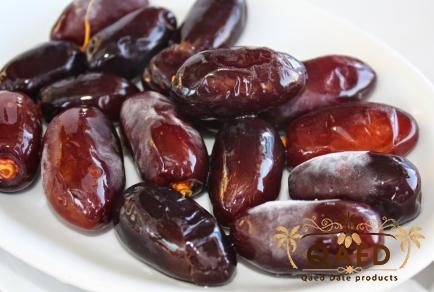
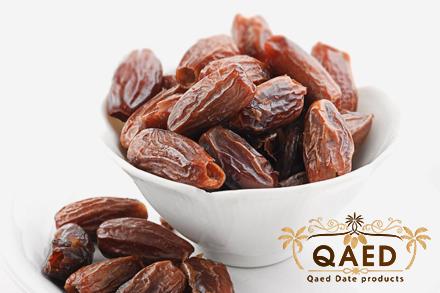
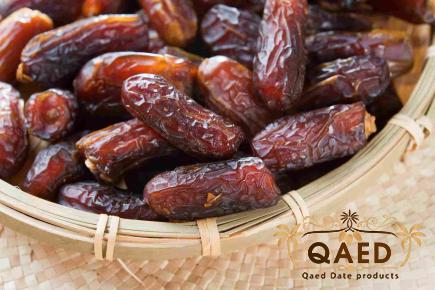
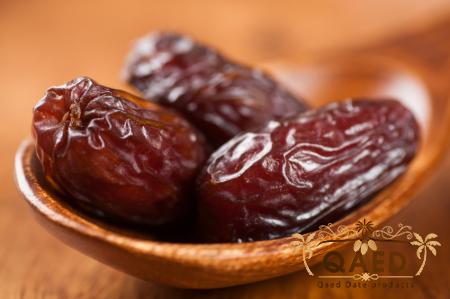
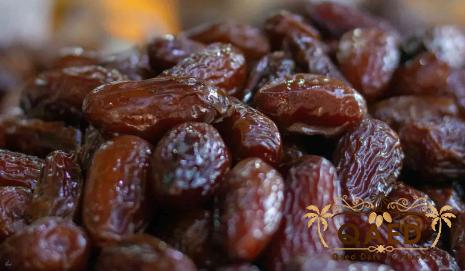
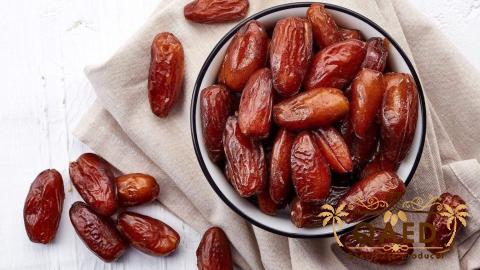

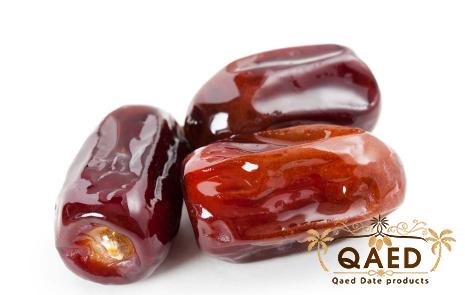
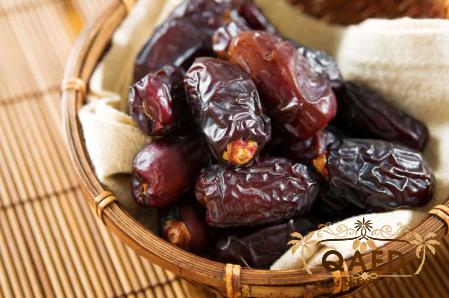
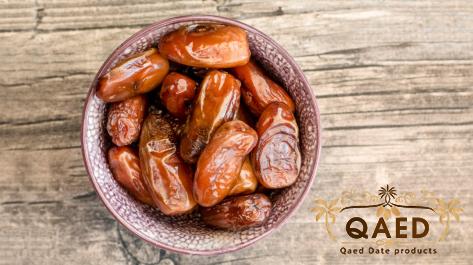
Your comment submitted.